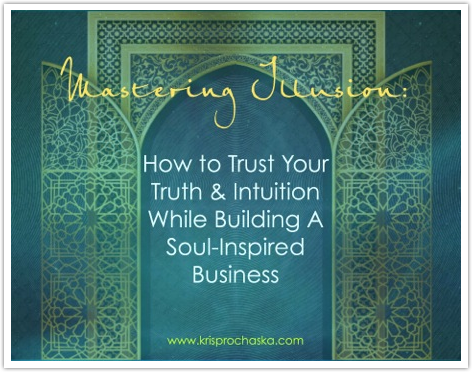How To Get On the TEDx Stage
What you need to know before you apply (and after you get accepted!)

Listen to this post HERE.
My 2015 TEDx talk is easily the worst talk I’ve ever given.
It’s true.
Not because I forgot my lines several times (though that’s part of it).
Not because I didn’t drive home the idea I shared with stories and examples (‘cause I did).
Not even because it looks like I’m the most serious person on the planet while on stage (I look like I have a stick up my ass and it’s uncomfortable – seriously, check it out!)
The reason it’s the worst talk I’ve ever given is because it wasn’t my idea.
It was only partially my idea and not what I really wanted to share, and because of that, I didn’t show up as authentically as I usually do, and my talk didn’t have the reach that it could have.
I don’t have many regrets in my life, but the way my 2015 TEDx experience went down, well, let’s just say it tops my short, but potent list of regrets.
It also lands in the top 3 peak experiences in my life where the experience and lesson was so profound, it was like grad school all over again, only shorter and perhaps more valuable because it went all the way to my Soul.
Of course, my experience was mine – and while it may not have been completely unique (from what I’ve heard from other TEDx organizers) it certainly need not be yours!
There were so many things I wish I had known BEFORE I applied, and while I was preparing my talk. That said, I don’t believe there are any mistakes, and what I learned has incredible value. Even while I wish it would have gone differently, I wouldn’t change what I got as a result because that is something that cannot be taken away and is the basis for my True work in the world.
I’ll share my story later about how my own idea was formulated and how it ended up NOT being the one I shared (watch for it in part three of this series!) but for now, let’s focus on YOU, your IDEA and what you need to be aware of in order to increase your chances of landing a coveted spot on the TEDx stage…
First of all, in case you don’t know the difference: TED is the BIG Kahuna. You can absolutely try to apply, but most of the people who land on that stage are INVITED. There are thousands of proposals received for a very few number of spots each year. Some TEDx talks/videos get shared to the TED channel, and you can think of the TEDx circuit sort of like the farm team system in baseball – some of those players move up to the big leagues, but most play, and do just fine, in the “minor” leagues.
[Simon Sinek for instance: his talk on the Power of Why was at a TEDx event. It just got so many views and shares that TED recognized it and pushed it out through the main TED channel on YouTube; Brene Brown’s original talk on the Power of Vulnerability – also a TEDx stage, whereas her talk on Shame was shared on the TED stage.]
Now, please don’t get me wrong – there’s nothing “minor” about a TEDx talk, it’s just that you’ll have a much better chance getting invited or having your proposal accepted at a TEDx event, simply because of the sheer number of them around the world (some 15,000 and counting!) The statistics are definitely in your favor at TEDx vs. the TED main stage.
Based on my personal experience, what I’ve learned from clients and a number of colleagues who have landed TEDx talks, along with my own research about how to get on the TEDx stage, I’ve compiled the following information and self-assessment questions for you:
- Most people who give TEDx talks are NOT speakers, business owners, or people with a product or service. They are normal everyday folks who have an idea or have had an experience that is distilled into an idea. If you happen to be a speaker, and/or entrepreneur, or want to do more speaking this is both good news and bad news. Good news because if you have stage presence and a clear, interesting idea that meets the criteria put out by TEDx (see #6 below) your chances are better than most for getting on the stage. Bad news because…
- If you have an idea that even smells of self-promotion or that directly relates to the services you offer, or the product you sell, the chances are that you’ll be passed over. This is NOT a speak-to-sell talk, no matter how you slice it. There are caveats, because I’ve seen, and I’m sure you have as well, lots of TED/x talks that totally related to the speaker’s professional work. HOWEVER there are at least a couple reasons for this:
-
- The way they shared the idea, or an aspect of the idea, or the story behind the idea was so compelling (which led them to the work they do);
- They were invited because the work they do is fresh, unique, interesting, and potent (i.e., Brene Brown talking about shame & vulnerability). The idea I originally pitched was about listening to our Inner Voice and the power of this, and how it could change the world if we did so because it focuses less on what’s “wrong” with us and more on what’s “right” about us. It was based on my work with therapy clients and my book, Life Well Spoken: Free Your Inner Voice & Prosper. Even though I was vetted because the idea was interesting to the organizers, it didn’t end up being the talk I gave (more about this later).
The reason I say it’s “bad news” for speakers & entrepreneurs is that very often the inspiration or motivation for doing a TEDx talk is because they want to launch their career. There’s nothing wrong with this – clearly many careers have been launched and/or catapulted through having a TED/x talk on their resume. Just be real about it with yourself and understand if you go into it with that intention, consciously or subconsciously, you’re likely to be disappointed.
- Each TEDx event has a unique theme that changes yearly. If you know the theme of the event to which you are submitting your proposal, look to see how your idea fits into the theme. Does it? If not, consider waiting a year for that city, or looking at another one. Also take into consideration the locals – how would your idea impact the locals in that region? Some thoughtfulness on your part will show you’re not just cutting and pasting your application answers and submitting to as many as you can mindlessly. This makes it look like you’re just trying to get onstage, and likely won’t fly with the organizers.
- You don’t get paid to speak at TED/x so if you can’t afford to fly to another country to speak, you may want to consider applying locally. It’s potentially your best bet as most venues pick at least a few local folks to speak, perform, etc.
- Three main ways to get INVITED (although these could also work if you are filling out the online application or submitting a proposal):
-
- Who do you know? Do you have connections to the event organizers? Have you met them personally? Can someone put in the good word for you? I find the enthusiastic, but non-aggressive approach works well here (it worked for me!) I casually shared over lunch with a friend, my dream to speak on the TEDx stage and she arranged for me to meet the organizer briefly and shake his hand to put a face to my application. I made sure I went to the event she suggested even though I felt a cold coming on that night and I stretched my comfort zone to make sure I met him. I wasn’t aggressive or pushy, just totally natural. I met a professional speaking coach a couple years ago who was aggressively pushy about getting on a TEDx stage. Ew. His energy was a total turn-off. I don’t know if he ever got a talk proposal accepted or not, but if he did, I’m pretty sure the organizers had their hands full with him and his energy!
- What do you know? I read somewhere that many of the people who are invited to give a TEDx talk are so damn busy “doing their thing” that they need to be convinced to pause from their work and take time to give a TEDx talk! I think of entrepreneurs, researchers, volunteers, and people doing cool things in the world who, perhaps at the time of being invited to give their talk, weren’t out giving lots of talks about their work, they were just doing it. OR the work they did as a professional, a volunteer or other community service was just so compelling it caught the attention of organizers and they invited this person to share their idea as part of their event.
- How well do you share it? How visible are you? You don’t need a huge platform to get a spot on the TEDx stage, remember there are plenty of people out there who don’t even have a website, let alone a large social media platform. That said, similar to #2, if you’re out there banging the drum for your core idea and doing your thing with so much presence & passion that you don’t think “how will this land me on the TEDx stage?”…well, it just might get you there!
6) Idea-assessment time! Write down your idea in 1-2 sentences. This will help you practice being concise. Then ask yourself the following questions (the first three* come directly from the speaker guidelines* at TED/x):
-
- *Is my idea new? Have people heard of this before? Am I thinking of something in a new way?
- *Is it interesting? Will it apply to a variety of people, or a specific population? Who might be interested in it?
- *Is it factual & realistic? In other words, do you have data to back it up (factual) and/or actionable (can your audience realistically do it)?
- *If no to any of the above, time to refine your idea!
- If yes to the above, ask yourself:
- How can my idea add value to others?
- How can it add value to the other ideas shared at this event (think theme again here – you may not know what other people will be discussing, it’s more about theme and context, location, etc.)
- How has the idea changed you, changed others, or could change the world?
- Why are YOU the best person to share it?
- Does your idea have a good story behind it?
- Can it be shared visually or in other ways beyond just verbally? (In case you haven’t been to a TEDx event there are other people there besides speakers: musicians, dancers, magicians, comedians, artists…don’t think just because you’re not a strong speaker you couldn’t bring your idea in a different medium!)
- Does the idea light YOU up?
Note: If your idea has to do with politics, religion, or even spirituality (including New Age ideas/science – anything “woo” – which I happen to love) you’ll probably want to find another venue. While I’ve seen TED/x talks that touch on quantum physics from perspective of science – like mirror neurons in the brain for instance – unless you’ve got hard science behind your idea, it’s likely you won’t even be vetted.
Finally, if you’ve read through all this and you’re still not sure if your idea is TEDx worthy, don’t give up!
It might be that your idea is better suited for another venue (I’ve had plenty of clients who have an awesome idea and we brainstormed lots of different ways to get it out there and even build a solid business around it, but it wasn’t something that would get them on a TEDx stage).
It might also be that your idea is in the ballpark, but you just haven’t distilled it to the essence and/or you don’t yet see why YOU are the perfect person to share the idea – so the stories behind it and how you would pitch the idea aren’t clear yet.
Recall how the idea I pitched and the idea I shared weren’t the same one? Well, it may be that with some objective clarity, your TRUE idea (the one you’re really jazzed about and supposed to give), gets refined and distilled to it’s essence – then you’ll know where and how to pitch it.
I’m going to share a little more about this idea refinement process in part three of this 3-part series. I call it Lies, How’s & Why’s, based on my own personal experience and the lessons I learned as a TEDx speaker – whether or not you feel called to speak on the TEDx stage, the lessons I share in Part 3 are going to clarify your life & business as well as your core idea.
In part two of this series, I’ll help you distinguish the difference between a TEDx- style talk and other types of talks (i.e., motivational, teaching, speak-to-sell, etc.) which will further help you see how to position your idea. TEDx really is a different kind of animal when it comes to speaking and when you understand what is required of you as the speaker, and the spirit with which a TED/x talk is given, it will make you and your idea that much more TEDx-“worthy.” I’ll also share what I wish I knew BEFORE applying and while preparing to step on the TEDx stage.
Keep dreaming & believing in yourself and your idea – there’s a reason it won’t leave you alone…let’s see if we can figure out why, where, and with whom you’re supposed to share it!
From My Heart & Soul to Yours,
Kris
P.S. If you’d like to receive part 2 (the difference between a professional speech & a TED/x Talk & what I wish I knew BEFORE getting onstage) & part 3 (Lies, How’s & Why’s: Lessons learned as a TEDx speaker) click below.



